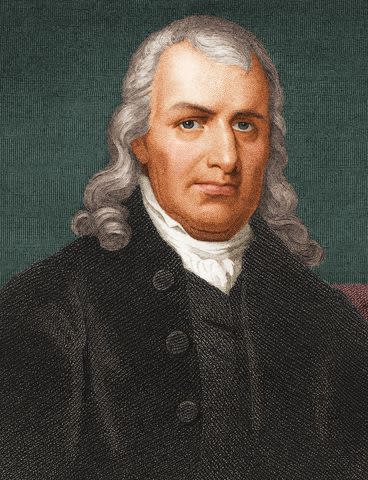AOC Looks to Impeach Supreme Court Justices After Trump Immunity Ruling. That’s Only Happened Once, in 1805
Democratic Rep. Alexandria Ocasio-Cortez suggested that desperate times call for desperate measures, as she looks to stop the Supreme Court from continuing what she views as an "assault on democracy"

Samantha Burkardt/Getty; Steven Hirsch-Pool/Getty
Alexandria Ocasio-Cortez in 2019, Donald Trump in 2024Rep. Alexandria Ocasio-Cortez is pushing back against the Supreme Court's ruling regarding presidential immunity — and she's not the first to do it in American history.
The New York congresswoman said that she is planning to file impeachment articles against at least one member of the Supreme Court following their ruling over former President Donald Trump's immunity as he faces four felony charges related to allegedly attempting to overturn the 2020 election results.
The decision was lambasted, even by the Supreme Court's three liberal justices, for giving future U.S. presidents unchecked power to break the law while they are in office.
"The Supreme Court has become consumed by a corruption crisis beyond its control," Ocasio Cortez, 34, wrote on X (formerly Twitter) on July 1.
“Today’s ruling represents an assault on American democracy. It is up to Congress to defend our nation from this authoritarian capture,” she continued. “I intend on filing articles of impeachment upon our return.”

Jabin Botsford-Pool/Getty
Donald Trump in 2024The Supreme Court decided that Trump, 78, was partially immune from prosecution for his actions after the 2020 presidential election, which led to the deadly Capitol riot on Jan. 6, 2021.
"The President enjoys no immunity for his unofficial acts, and not everything the President does is official," the court's decision says. "But under our system of separated powers, the President may not be prosecuted for exercising his core constitutional powers, and he is entitled to at least presumptive immunity from prosecution for his official acts."
The ability of a president to break the law without prosecution has sparked concerns among many who say it could weaken democracy, including President Joe Biden.
Talk of removing Supreme Court justices over their unpopular decisions is not new, and in one case, a Supreme Court justice was actually impeached, establishing some precedent for AOC's impending filing. Though in today's closely divided Congress, an impeachment of any Supreme Court justice would be a tall task.

The Supreme Court Justice Who Got Impeached
Over 200 years ago, President Thomas Jefferson and his party, the Democratic-Republicans, didn't like the way the judicial branch was expanding its power with different circuits and court levels, according to the Senate's official website.
Supreme Court Justice Samuel Chase, a Federalist who joined the court in 1796, was in favor of the judicial branch expanding, Oyez notes. His outspokenness against the Jeffersonian Republicans after they gained control in 1801 made him a sufficient target.
Jefferson, who became president in the 1800 election and was reelected in 1804, was wary of the Supreme Court becoming too powerful through judicial review (which was established in Marbury v. Madison).
He wanted to remove Federalist judges from the bench and repealed the Judiciary Act of 1801, which eliminated the lower courts and terminated their federal judges (who otherwise would have had lifetime appointments), as per Oyez.
Chase besmirched Jefferson's action, telling a Baltimore grand jury that it was unconstitutional.

Stock Montage/Getty
A portrait of Samuel ChaseAccording to Oyez, Jefferson and his supporters in Congress mounted an impeachment effort against Justice Chase to silence him from criticizing the president.
The House ultimately voted to impeach Justice Chase on Mar. 12, 1804, on the basis of refusing to dismiss biased jurors, along with excluding or limiting defense witnesses in two cases that were deemed politically sensitive.
The Senate's website notes that members of the House wanted to prove that Chase had "behaved in an arbitrary, oppressive, and unjust way by announcing his legal interpretation on the law of treason before defense counsel had been heard."
Of the eight articles of impeachment served to Chase, the final one claimed that he regularly promoted his political ideologies while serving on the Supreme Court, therefore "tending to prostitute the high judicial character with which he was invested, to the low purpose of an electioneering partizan," as per the Senate's website.
Chase appeared in court in January 1805, proclaiming that his impeachment trial was politically charged not the result of any real crime. Ultimately, Chase convinced enough senators to acquit him, and he was not removed from office.
Never miss a story — sign up for PEOPLE's free daily newsletter to stay up-to-date on the best of what PEOPLE has to offer, from celebrity news to compelling human interest stories.
It was viewed as a victory for the courts. More notably, it established the precedent that a judge cannot be expelled from their position over presenting conflicting political views while serving on court.
Following the impeachment trial, Chase resumed his duties on the bench and stayed there until he died in 1811.
For more People news, make sure to sign up for our newsletter!
Read the original article on People.


